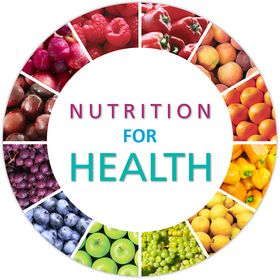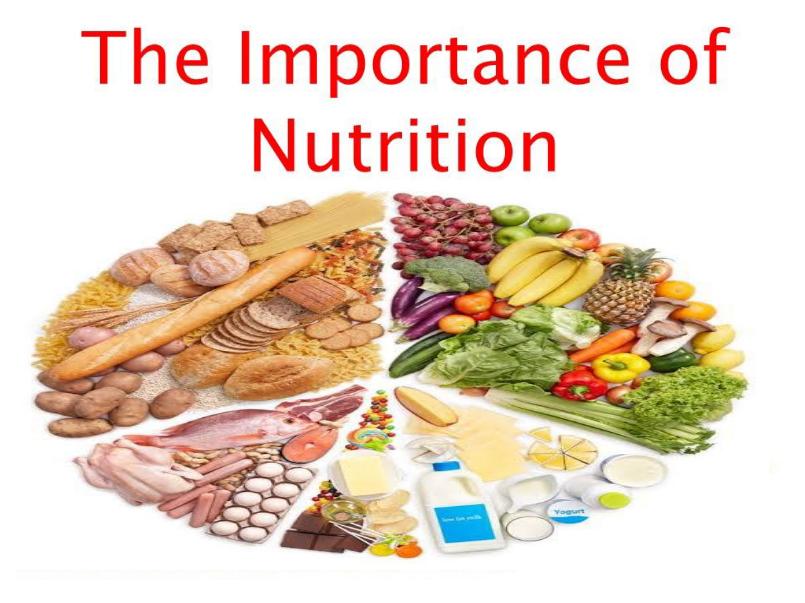Nutrition is the study of nutrients in food, how the body uses them, and the relationship between diet, health, and disease. Nutritionists use ideas from molecular biology, biochemistry, and genetics to understand how nutrients affect the human body.
Nutrition also focuses on how people can use dietary choices to reduce the risk of disease, what happens if a person has too much or too little of a nutrient, and how allergies work. It looks at the physiological and biochemical processes involved in nourishment and how substances in food provide energy or are converted into body tissues.
Nutrients provide nourishment. Proteins, carbohydrates, fat, vitamins, minerals, fiber, and water are all nutrients. If people do not have the right balance of nutrients in their diet, their risk of developing certain health conditions increases.
6 Major Importance Of Nutrition
Nutrition is a critical part of health and development. Better nutrition is related to improved infant, child, and maternal health, stronger immune systems, safer pregnancy and childbirth, lower risk of non-communicable diseases (such as diabetes and cardiovascular disease), and longevity.
Healthy children learn better. People with adequate nutrition are more productive and can create opportunities to gradually break the cycles of poverty and hunger.
Malnutrition, in every form, presents significant threats to human health. Today the world faces a double burden of malnutrition that includes both undernutrition and overweight, especially in low- and middle-income countries. A healthy diet and good nutrition throughout life are important for the following additional reasons:
Promotes Good Health
Food necessary for health and growth can take on different forms for different people. For older adults, this means eating foods high in calcium and vitamin D to help maintain proper bone health and eating more fiber-rich foods to help lower the risk for heart disease and type 2 diabetes. For a pregnant woman, supplying her body with a blend of nutritious foods will keep her feeling healthy during pregnancy and could lead to an easier labor. But most importantly, pregnancy is the time in a woman’s life that her eating habits will have a direct impact on another person – that of her growing baby.
Enhances Growth and Nourishment
For children, adequate nutrition is one of the most important factors influencing growth and immunity. A balanced diet must contain the proper amount of protein, carbohydrate, fat, calcium, vitamins, and fiber. Each of these nutrients plays a vital role in the overall growth and development of children:
Protein helps a child’s body build cells, break down food into energy, and fight infection.
Carbohydrates are the body’s most important source of energy, helping a child’s body to use fat and protein for building and repairing tissue.
Fats are a great source of energy for kids and are easily stored in a child’s body. They are also important in helping the body properly use some of the other nutrients it needs.
Calcium is essential in helping to build a child’s healthy bones and teeth. It’s also important for blood clotting and for nerve, muscle, and heart function.
Iron is necessary for a child to build healthy blood that carries oxygen to cells all over the body.
Vitamin B helps the body produce red blood cells and assists in metabolic activities — this means that B vitamins help make energy and set it free when your child’s body needs it.
Vitamin C does more than just fight off the common cold. It helps form and repair red blood cells, bones, and tissues. It helps your child’s gums stay healthy and strengthens your child’s blood vessels, minimizing bruising from falls and scrapes. In addition, it helps cuts and wounds heal, boosts the immune system, and keeps infections at bay.
Fiber helps produce bowel regularity in a child. It can also play a role in reducing the chances of heart disease and cancer later in life.
Ensures Critical Development
As a parent, we want our children to be healthy, without any growth or developmental issues. Adequate nutrition during the first 1,000 days of life, starting from conception through age two, is one of the fundamental prerequisites for survival, growth, optimal development, and lifelong health. In fact, the foundations for lifelong health are largely set during those first 1,000 days, the most critical development period of brain growth and function. It is widely recognized as a time of enormous vulnerability but also a time of tremendous potential to impact the long-term health of our children. Due to the specific nutritional requirements during this rapid period of growth, even small nutritional deficits, especially when persistent, may negatively impact growth, neurodevelopment, and adult health.
Healthy Pregnancy Outcomes
Starting with pregnancy, a healthy maternal diet of nutrient-rich foods has a significant impact on a developing child’s metabolism, immune system, physical development, and organ functioning. The roots of obesity and many adult diseases such as heart disease, type 2 diabetes, and hypertension begin in pregnancy and are shaped by the nutrition a child receives (or doesn’t receive) in utero. In addition, the human brain develops during pregnancy at an astonishing speed. The neural tube forms just 16 days after conception and by 7 months gestation, a child’s brain takes on a form that resembles that of an adult’s brain. The nutrition that a baby gets from mom through her diet is the indispensable fuel that drives much of this incredible transformation. When a mother lacks adequate calories, protein, fatty acids, or key micronutrients in her pregnancy, these vital neurodevelopmental processes can be impaired. A recent study found that pregnant women who keep high-fat, calorie-dense diets while pregnant can pass on a whole slew of health issues to their children such as asthma, diabetes, and obesity.
Helps to maintain a healthy body weight
It’s no secret that the amount of calories people eat and drink has a direct impact on their weight: Consume the same number of calories that the body burns over time, and weight stays stable. Consume more than the body burns, weight goes up. Less, weight goes down. According to the Dietary Guidelines for Americans 2015–2020external icon, a healthy eating plan:
- Emphasizes fruits, vegetables, whole grains, and fat-free or low-fat milk and milk products
- Includes lean meats, poultry, fish, beans, eggs, and nuts
- Is low in saturated fats, trans fats, cholesterol, salt (sodium), and added sugars
- Stays within your daily calorie needs
The good news is that many of the foods that help prevent disease also seem to help with weight control. Foods like whole grains, vegetables, fruits, and nuts. And many of the foods that increase disease risk-chief among them are refined grains and sugary drinks-are also factors in weight gain. Conventional wisdom says that since a calorie is a calorie, regardless of its source, the best advice for weight control is simply to eat less and exercise more.
Reduces the risk of chronic disease
There’s ample research on foods and diet patterns that protect against heart disease, stroke, diabetes, and other chronic conditions. Researchers have also found that eating too much or too little of certain foods and nutrients can raise the risk of dying of heart disease, stroke, and type 2 diabetes. These results suggest ways to change eating habits that may help improve health.
The researchers investigated the relationships of 10 different foods and nutrients with deaths related to heart disease, stroke, and type 2 diabetes. They also compared data on participants’ age, sex, ethnicity, and education. They found that nearly half of all the deaths in the United States in 2012 that were caused by cardiometabolic diseases were associated with suboptimal eating habits. Of 702,308 adult deaths due to heart disease, stroke, and type 2 diabetes, 318,656 (45%) were associated with inadequate consumption of certain foods and nutrients widely considered. SEE: Clean Health Nutrition Safer Colon






